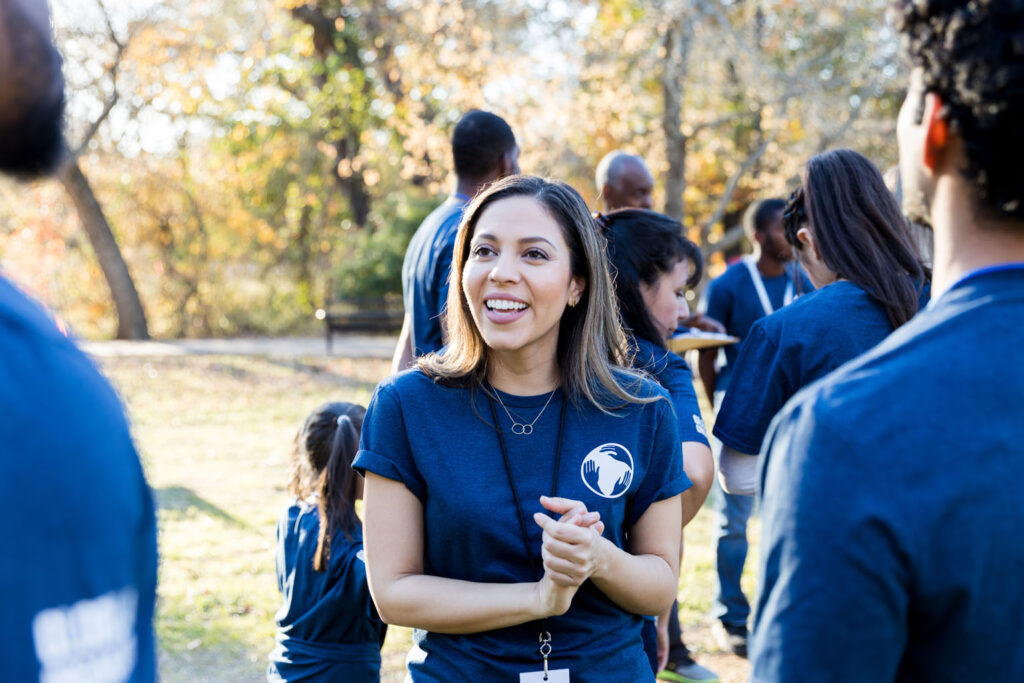Both large and small events often rely on the help of volunteers who are instrumental to many fairs and special events, as they fill much-needed staffing gaps and work at no cost. Event volunteer management includes recruiting, training, and managing a team of volunteers who are eager and capable of adding value to your event.
While having volunteers at your event are beneficial, they do not come without risks. An event volunteer can quickly go from hero to creating a devastating liability with a personal injury claim. The law provides some help for negligent acts of volunteers, but the laws vary widely and are often misunderstood. You must manage the risks involved, understand the applicable laws, and have the right insurance to cover any possible claims stemming from a volunteer’s actions.
Legal Liability Risks for Event Volunteer Management
Volunteers need to understand your safety policies and expectations. They need to feel connected to your mission and feel valued to do a good job. The powerful incentive of getting paid is not at work with volunteers. You must demonstrate leadership and energize them by clarifying their responsibilities and showing genuine appreciation for the value they’re providing.
Even when you do everything right, risk remains. Some of the biggest risks involved in working with volunteers include:
Injury Risks: Employees, volunteers, persons who attend the event, etc., may be injured. Special events often include high-risk activities such as alcohol service, fireworks, children’s rides or games, etc.
Reputation Risks: If contentious situations are not handled well, the business reputation can quickly get damaged with the hyper digitally connected world we live in.
Financial Risks: All businesses need to operate at a profit to stay in business. A legal claim can quickly drain revenue and put businesses in the red.
Legal Liability: As an occupier of a premise, you are responsible for the safety of those who attend a special event. Occupiers must protect patrons from all foreseeable harm. Extra precautions must be taken if:
- Alcohol is served.
- Children/minors are in attendance.
- Dangerous or hazardous activities are undertaken, such as fireworks, boating, and some sports.
- Gambling is involved.
- Large crowds are in attendance.
Best Practices for Managing Volunteer Liability Risks
When working with event volunteers, a step to consider in managing your risk is using a volunteer liability waiver. In most cases, a volunteer waiver protects you in the event of an accident involving a volunteer. The waiver should serve as a document of understanding between you and your volunteers. This means it’s important for volunteers to understand the level of risk they are taking on before signing the waiver and agreeing to volunteer for your event. Waiver and release laws vary by state. It is critical to work with your local attorneys familiar with the laws in your state when drafting up a waiver. Waiver samples include:
- Simple Liability Waiver – A generic liability waiver should cover any ordinary workplace risks. Most of these would relate to injury claims.
- Release of Liability – When a volunteer signs a general liability waiver, they are saying they will not sue you. When they sign a release of liability, it goes a step further as it represents a transfer of liability. So, if they’re injured or cause an injury, they become responsible for dealing with the aftermath, along with not suing your operation.
If you’re regularly working with volunteers for your events, you’ll want to add an extra layer of protection. Special event insurance will not only protect you from volunteer risks but security risks as well. McGowan Allied Specialty Insurance specializes in event coverage for the amusement and entertainment industry.
